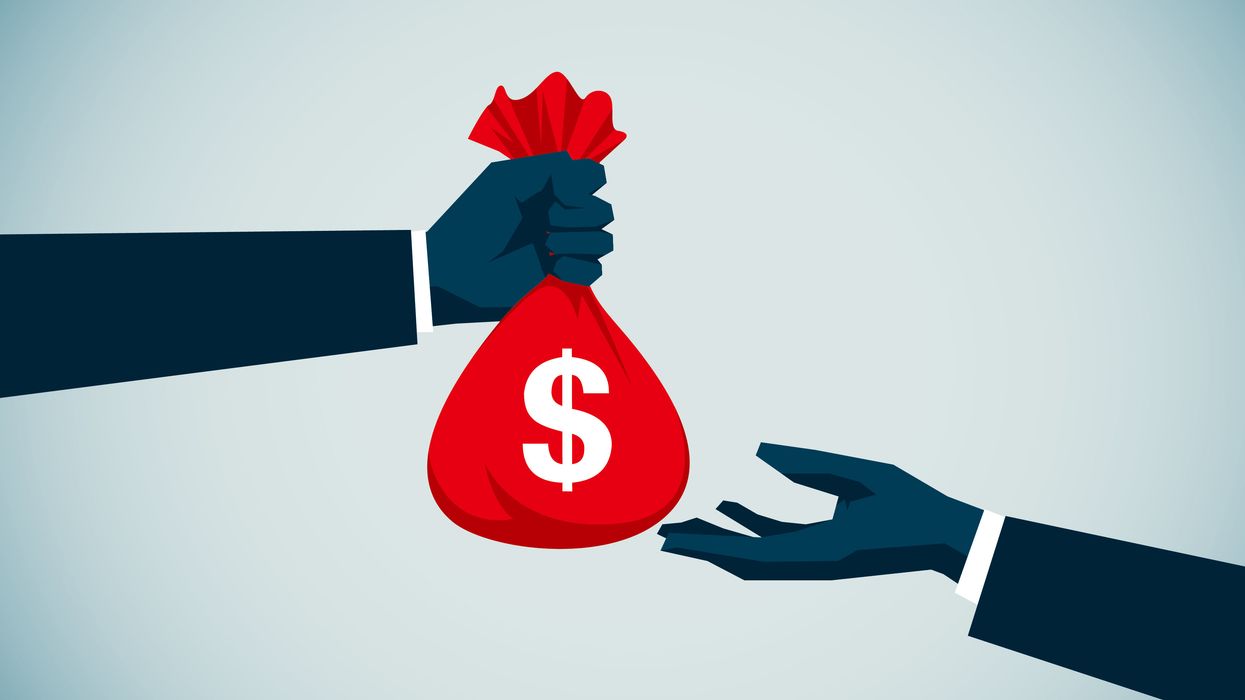Sixteen of the nation's most prominent political reform groups have been pressing the presidential candidates for six months to be transparent about who's helping them stuff their campaign coffers. They're getting hardly anywhere.
The group put out another plea this week, urging all 19 Democrats remaining in the race, plus President Donald Trump and his three Republican challengers, to "implement a system to regularly and meaningfully disclose information" about their so-called bundlers.
These are the affluent, well-connected people who gather donations from others and deliver those funds in a "bundle" to their favorite candidate — and, if that person ends up in the White House, are very likely to be near the heads of the line for plum positions including ambassadorships and membership on policymaking boards.
The letter urged all the candidates to come clean and take the path of greater transparency when they file their campaign finance reports for the third quarter at the Federal Election Commissionnext week. But similar letters sent in April and June have produced next to no results.
"Implementing a robust bundler disclosure system that publicly displays information about all individuals who raise $50,000 or more for your campaign would help demonstrate your commitment to transparency as you seek your party's presidential nomination," the letter has said each time.
Since the first one was sent, only one candidate has come close to meeting the coalition's demands: Mayor Pete Buttigieg of South Bend, Ind. He released a list of his two dozen bundlers in April, but it did not include how much money each had hauled in on his behalf. His list also hasn't been updated since the initial announcement.
Sen. Kamala Harris of California, Sen. Amy Klobuchar of Minnesota and Rep. Tim Ryan of Ohio have all said they would disclose their bundlers but so far have nor released any information.
The letter-writers have not heard from the Democratic frontrunner, Joe Biden, who made extensive use of the bundling system when he was twice campaigning successfully for vice president.
His closest rivals in the polls, Sen. Elizabeth Warren of Massachusetts and Sen. Bernie Sanders of Vermont, say they do not rely on bundlers to collect cash for their campaigns, which mostly rely on small-dollar donors giving online.
Businessmen Tom Steyer and Andrew Yang have also said they do not apply this technique to their fundraising, but both vowed to disclose the information if they did.
The previous two presidents, Barack Obama and George W. Bush, both disclosed the names of their bundlers for each of their winning campaigns. So did Hillary Clinton when she was the Democratic nominee in 2016 and John McCain when he was the Republican standard bearer in 2008. Mitt Romney, the GOP nominee of 2012, did not.
Trump broke with tradition and did not name his bundlers after winning the White House three years ago and he has not yet replied to this year's series of letters asking that he do so. None of the three Republicans hoping to deny him renomination has done so, either, although their campaigns only got off the ground in recent months.
The letter asks the candidates to:
- Disclose bundler information in reports that coincide with regular FEC reporting requirements.
- Provide the name, city, state and ZIP code of every bundler along with their employer and occupation — information that candidates must already provide for large donors.
- Update regularly the aggregate amount each bundler has raised for their campaign.
- Publish this information on their official website in a format that can be searched, sorted and downloaded.
The 16 advocacy groups that co-signed the letter include the Campaign Legal Center, Common Cause, Public Citizen, RepresentUs and Issue One. (The Fulcrum is being incubated by Issue One but remains journalistically independent.)




















